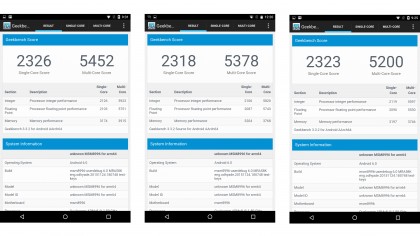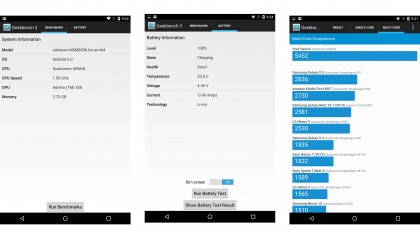Forget octa-core smartphones - four cores prove that less is more
Fewer cores, but a lot more power

Manufacturers have been falling over themselves in 2015 to tell you how many cores they've managed to cram into their wafer-thin devices - six, seven, even eight - for the sake of more power, but this could be the end of the road.
Qualcomm's recently-announced Snapdragon 820 chip is due to hit handsets in the first half of 2016, and unlike its octa-core predecessor (the 810) it's only sporting four cores.
That might set alarm bells ringing, but techradar's spent some time with a 6.2-inch developer handset with the 820 and 3GB of RAM inside, and the benchmark results are intriguing.
When quizzed on the reasoning for dropping from eight to four cores Qualcomm's Director of Product Management, David Kipping, said: "After conducting extensive research we found that usually only one or two cores were active at any one time, and for a lot of the time they are switched off completely."
Less is more
With that in mind, Qualcomm saw fit to reduce the number of cores in its new flagship processor as it looked to not only improve performance, but also power efficiency.
We ran the Geekbench 3 app multiple times on the MDP (Mobile Development Platform) and it averaged a multi-core score 5373. That's massive.

The Samsung Galaxy S6 managed to clock 4850 when we ran the same test during our review, while the iPhone 6S (4417), Nexus 6P (4073) and Sony Xperia Z5 (4015) are all way behind.
Sign up for breaking news, reviews, opinion, top tech deals, and more.
It's worth noting that the MDP was running non-final software, and as its Qualcomm's own hardware we don't know whether it's be skewed to perform better in these tests.

We also stuck it through Antutu 6.0, where the Snapdragon 820 clocked an average of 132,772.
According to the comparison chart in the app, it blows the Galaxy Note 5 (83,944), Huawei Mate 8 (92,746) and Samsung Galaxy S6 Edge (81,087) out the water.

The results we've seen here may not translate fully into the flagships of 2016, with the likes of the Samsung Galaxy S7 and HTC One M10 rumoured to pack the new processor.
One thing looks certain - our phones are set to become even more powerful next year. We just hope Qualcomm's claims of improved battery life hold true too.

TechRadar's former Global Managing Editor, John has been a technology journalist for more than a decade, and over the years has built up a vast knowledge of the tech industry. He’s interviewed CEOs from some of the world’s biggest tech firms, visited their HQs, and appeared on live TV and radio, including Sky News, BBC News, BBC World News, Al Jazeera, LBC, and BBC Radio 4.